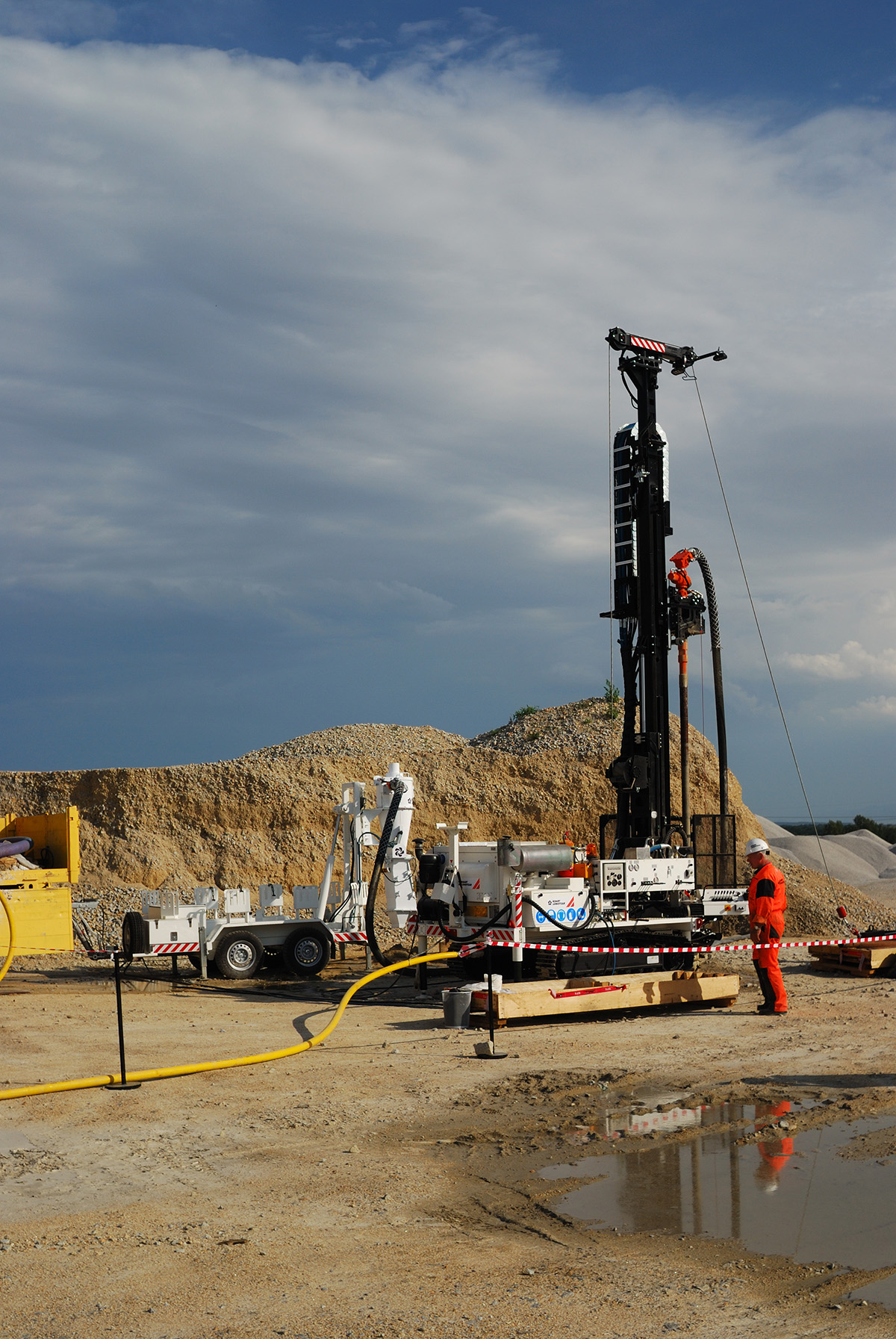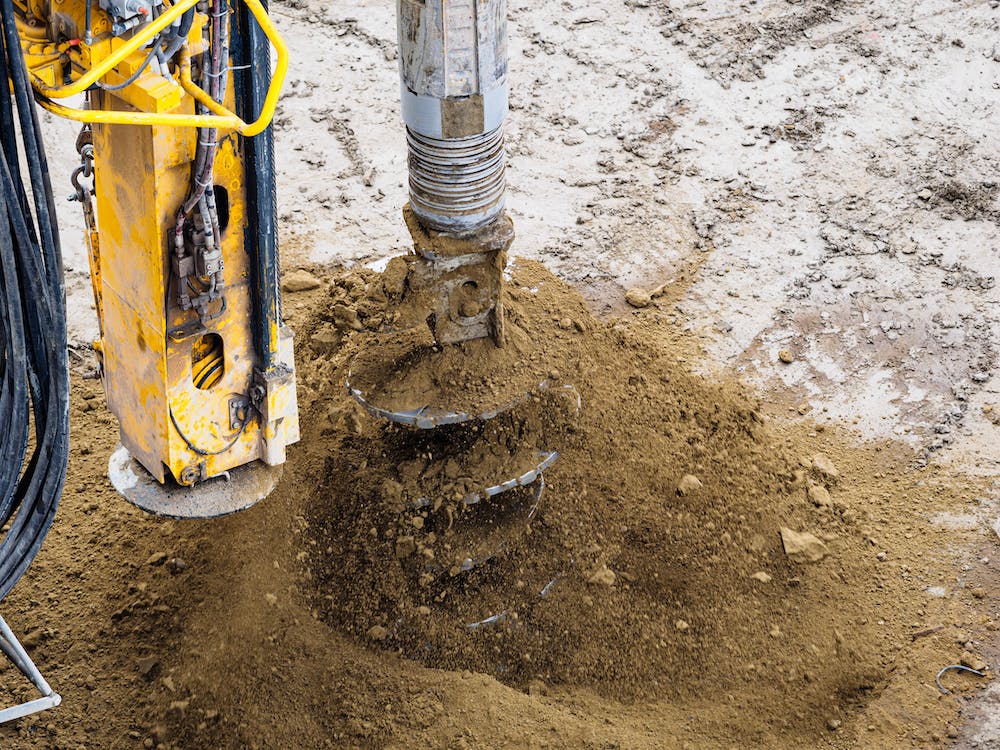The Significance of Geotechnical Design in Dealing With Ecological Challenges and Enhancing Building And Construction Safety
Geotechnical engineering works as a cornerstone in the intersection of environmental stewardship and building and construction safety, offering important insights right into the habits of dirt and rock under different problems. This technique not just addresses pressing ecological obstacles such as dirt erosion and groundwater security but also enhances the toughness of infrastructure against all-natural dangers. By implementing calculated site investigations and tailored mitigation measures, geotechnical engineers play an important role in safeguarding both human lives and eco-friendly honesty. Yet, the intricacies of these challenges raise crucial concerns regarding the future direction of this field and its ramifications for lasting development.

Role of Geotechnical Design
Geotechnical engineering plays an important duty in the layout and building and construction of facilities by addressing the actions of soil and rock materials under different problems. This field of engineering is essential for comprehending the interaction in between frameworks and the ground, which includes figuring out the load-bearing capability of dirt, evaluating security, and anticipating prospective settlement or failing.
Geotechnical engineers are liable for performing site examinations, which include tasting and testing soil and rock to gather data on their physical and chemical properties. This details is essential for creating foundations, maintaining walls, and various other earth-retaining frameworks that guarantee safety and longevity. Geotechnical engineering educates the selection of proper building techniques and products, consequently reducing risks connected with dirt behavior.
Additionally, the assimilation of geotechnical engineering principles right into metropolitan planning and ecological management is essential for attending to obstacles such as ground contamination and groundwater monitoring. By understanding geotechnical factors, designers can develop lasting services that enhance the durability of infrastructure versus natural hazards, while additionally advertising ecological stewardship. Ultimately, the duty of geotechnical engineering is indispensable for attaining risk-free, durable, and eco aware construction methods.
Soil Disintegration Mitigation
Soil disintegration positions a considerable risk to both ecological stability and facilities integrity, impacting roughly 24 billion lots of fertile soil lost yearly worldwide. This sensation is aggravated by factors such as logging, urbanization, and bad farming practices. Geotechnical engineering plays a critical function in establishing reliable soil erosion mitigation strategies that protect both the environment and construction tasks.
One approach requires the execution of disintegration control approaches such as plants planting, which maintains dirt through origin systems. Additionally, the construction of keeping balconies and wall surfaces can efficiently reduce surface area runoff and shield at risk areas from erosion. Appropriate water drainage style is likewise important; it decreases water build-up and guides excess overflow away from important structures.
Furthermore, geotechnical engineers employ dirt stabilization methods, such as the application of geotextiles and eco-friendly floor coverings, to enhance dirt communication and stop destruction - geotechnical companies in south africa. Routine monitoring and assessment of erosion-prone sites enable timely treatments, guaranteeing long-term sustainability. By incorporating these strategies, geotechnical design not just mitigates the influences of soil disintegration however also adds to the strength of facilities versus environmental difficulties, ultimately promoting a safer and more lasting developed atmosphere
Groundwater Protection Approaches
Groundwater acts as a crucial resource for alcohol consumption water, farming, and industrial processes, making its protection crucial for ecological sustainability and public wellness. Reliable groundwater defense techniques are important in reducing contamination dangers and ensuring the longevity of this source.

Routine tracking of groundwater high quality is additionally vital, enabling early discovery of contamination sources and facilitating prompt removal initiatives. Employing advanced innovations, such as geophysical surveys and remote noticing, help in recognizing visit our website possible hazards to groundwater books.
Moreover, public education and learning and stakeholder engagement are important, fostering community support for groundwater defense campaigns. geotechnical specialist. By combining regulatory procedures, technical innovations, and area involvement, we can produce a detailed framework that safeguards groundwater sources while advertising sustainable advancement and building practices
Landslide Danger Administration
Landslides present significant hazards to both human security and infrastructure, making effective risk management strategies essential. Geotechnical engineering plays an important function in recognizing, analyzing, and mitigating landslide threats. A detailed understanding of incline security, soil technicians, and hydrology is essential for establishing efficient risk monitoring visit here strategies.
The first action in landslide risk monitoring involves thorough website examinations, which include geological mapping and soil testing. These examinations help designers review the potential for landslides by identifying important elements such as incline angles, dirt composition, and water content. Using innovative modern technologies such as remote sensing and geophysical surveys can improve the accuracy of these evaluations.
When threats are determined, proper mitigation steps can be carried out. These might include engineering services such as maintaining walls, water drainage systems, and slope stablizing methods. Keeping track of systems ought to be developed to spot indications of ground activity and changes in water degrees, enabling for proactive treatments.

Enhancing Building Safety And Security
Building sites often offer a myriad of hazards that can jeopardize employee safety and security and project integrity. Geotechnical engineering plays a vital role in improving building safety by supplying vital insights into subsurface problems. Via thorough dirt and rock analysis, geotechnical engineers can determine prospective threats, such as dirt instability, groundwater concerns, and seismic vulnerabilities, which may compromise the security of building tasks.
Applying geotechnical services, such as correct structure style and the usage of preserving structures, alleviates these threats substantially. These remedies not only make certain the stability of the frameworks being built yet also produce a safer working setting for construction employees.
Furthermore, promoting a culture of security with training and adherence to developed safety and security procedures even more enhances building and construction website security. By integrating geotechnical experience into the planning and implementation phases, building tasks can achieve greater safety and security criteria, eventually protecting workers and guaranteeing effective task conclusion.
Conclusion
Finally, geotechnical engineering functions as a vital discipline in advertising and tackling ecological challenges building and construction safety. With reliable soil erosion reduction, groundwater defense strategies, and landslide risk monitoring, geotechnical engineers add to the advancement of resistant framework. The integration of these techniques fosters a much safer building and construction setting and boosts the sustainability of civil design tasks. Eventually, the expertise of geotechnical designers is vital in safeguarding both natural deposits and human lives versus prospective dangers.
Geotechnical design serves as a foundation in the intersection of ecological stewardship and building safety and security, providing crucial understandings right into the habits of dirt and rock under check various problems. Geotechnical engineering educates the option of appropriate building techniques and materials, thus decreasing threats linked with soil behavior.
Geotechnical design plays a critical function in developing effective soil disintegration reduction approaches that secure both the environment and building jobs.
Additionally, geotechnical designers employ soil stabilization techniques, such as the application of geotextiles and eco-friendly mats, to enhance dirt communication and prevent deterioration. Via detailed soil and rock analysis, geotechnical engineers can determine potential dangers, such as soil instability, groundwater concerns, and seismic vulnerabilities, which may endanger the security of construction tasks.
Comments on “Top Reasons to Hire a Geotechnical Specialist for Your Construction Tasks”